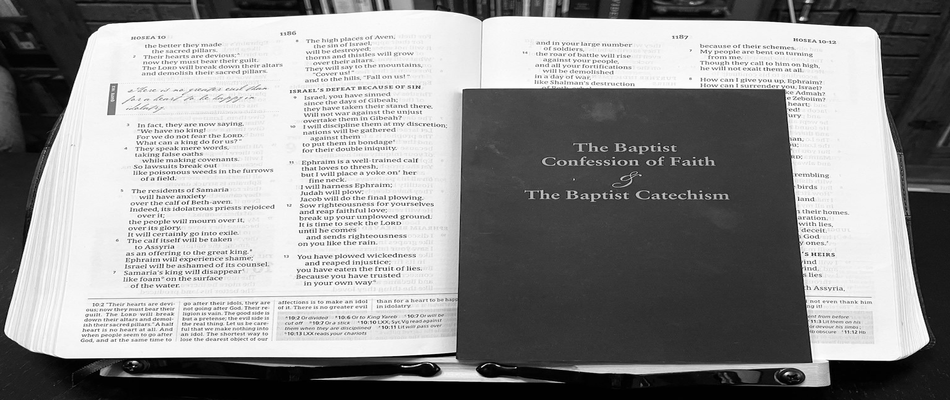Monday Morning Musings is a hodgepodge of contemplations as I begin a new week. Check-in on Monday morning to receive a myriad of thoughts from my vapid brain. The written and audio can be found at www.cornfieldtheology.com
Every Book and Every Word Matters
When is the last time you read and studied 3 John? Not John 3 but 3 John. Several years ago, another pastor and I preached through the short books of the Bible. I was tasked with 2 and 3 John. They are the two shortest books. I recently re-preached my sermon on 3 John. I don’t re-preach sermons often unless I am a guest of another church. But due to travel leading up to the 4th of July, I made an exception. In my study of 3 John, I was reminded how every book and every word in the Bible matters. Every word and every book has something to teach. If you believe all of God’s Word is sufficient, reading Romans and 3 John is an opportunity to be instructed by God.
What’s the Point?
You might be wondering, what’s your point? Good for you that God reminded you that every book of the Bible has significance. Well, when’s the last time you read through 3 John or Leviticus? Leviticus isn’t the most exciting book in the Bible. But it’s still valuable. Leviticus is still able to instruct. Leviticus helps build out the greater story arc of the Bible. Here is a verse from Leviticus that has had staying power.
You shall not take vengeance or bear a grudge against the sons of your own people, but you shall love your neighbor as yourself: I am the Lord.
– Leviticus 19:18
I understand that the Law in Leviticus isn’t the most exciting read, but it’s still a part of the Bible. God spoke, and He continues to speak through the Book of Leviticus.
Cherry Picking
Listen, I love Romans. Paul’s ability to frame a theological argument in Romans is second to none. We are currently going through the Book of Ephesians at Redemption Hill Church. Ephesians is a treasure trove of rich theology, especially chapters 1-3. But there is more to discover and learn, and Bible readers need to resist the temptation to constantly cherry-pick what they read. There is more to God’s Word than your favorite books and verses. Yes, your favorite books and verses will serve your soul, but there is more. Don’t stop after the Book of Exodus, but slug through the remainder of the Pentateuch. Don’t stop after 1 John, but turn the page to 2 John, and then the next page to 3 John. You can spend a lifetime reading the Bible, and there will always be more.
A Journey Toward Confessionalism
When God poured out the Spirit on my cold dead heart in my early 20s, I immediately plugged into a church. The church affiliated with a network of other like-minded churches, but many considered it nondenominational. It was also charismatic or quasi-pentecostal. I was not discerning at the time, so I accepted the practice and theology of the church.
One day I decided to read the church’s “Statement of Faith.” It took 3 minutes to finish. It was concise, but I am sure a Mormon or Jehovah’s Witness could affirm the statement. It wasn’t unorthodox, but it told me nothing about the theology of the church, along with what distinguishes this church from other churches. Instead, the focus is on values or vision. Now, I am down with values and vision, but values and vision should flow from theology. This church wanted its theology to fit its values and vision.
The Journey Continues
After leaving that church for seminary, I eventually found myself at church with a strong statement of faith. It made clear its theological foundation and was graciously unapologetic. My wife and I became members because of the theological vision of the church. In the membership class, a lot of time was spent talking about the theology of the church. To this day, this church is a part of a denomination with a thoughtful and robust statement of faith. I commended the work of any church or denomination, making clear what they believe about God, the Bible, Christianity, etc.
Slapped in the Face by the 1689
I remember when a friend asked me what I knew about the 1689 Second London Confession of Faith. At the time, my knowledge was elementary. Whatever my introductory church history book said is what I knew. My knowledge of creeds far outpaced my knowledge of confessions. So I did some research. I read multiple Protestant confessions. I read a fantastic devotion that incorporated the Heidelberg Catechism. Over time, I began to see the depth and beauty of confessions. In particular, the 1689 affirmed by baptistic and reformed convictions.
Not a Statement of Faith
A confession of faith offers more than a statement of faith. Take a look at various church websites and read the statement of faith. How many were blindly copied from another church website? You will not find Christian organizations or churches copy and pasting a confession of faith. Instead, it will take thought, prayer, a wrestle with theology to affirm any confession of faith. When you wrestle with a confession of faith, you will grow in your understanding of theology, the importance of the local church, the sacraments, and in the case of the WCF and the 1689, you learn a bit about Covenant Theology. Point is, confessions of faith will help you grow.
History
I also love the historical connection. There are men with far more excellent theological acumen who spent time reading, writing, debating, and eventually producing a document withstanding the test of time. Whether it’s the Westminster Divines or men like Benjamin Keach, William Kiffin, and Hanserd Knollys, Redemption Hill is a part of a denomination benefiting from their labor years later.
Theological Guardrails for the Church
Confessions of faith also serve as theological guardrails for the church. These theological guardrails will keep pastors accountable for what they preach and teach. For example, if a pastor goes rogue by becoming Arminian, the church can hold him accountable because of the confession of faith. In addition, waterdown evanjelly statements of faith allow multiple pastors in the same church to hold various theological positions on essential doctrines. The church does not benefit from this kind of theological divide. Quibbling over the practice of theology is a part of any pastoral/elder team. But a difference of opinion on baptism will leave a church with theological whiplash every time the next pastor teaches or preaches.
The Utility of Confessions
There is also a utility with confessions that statements of faith do not provide. Confessions are documents that can be taught in various contexts. Because of how confessions are written and the theological depth, confessions can be used during the Sunday liturgy. Confessions can be used to catechize children and adults. As I already mentioned, I read a devotion book based upon Heidelberg Catechism.
Final Thoughts?
I have a lot more thoughts about the importance of confessions. But I’ll save those thoughts for additional blog posts. But perhaps you are not aware of confessions. If so, I want to encourage you to take time and read the Heidelberg Catechism or the 1689 Second London Confession of Faith. Read the Trinity Fellowship Churches Confession of Faith, which is based on the 1689. If you are a follower of Jesus Christ I want to challenge you to take time to learn and grow in your theology through confessions.


